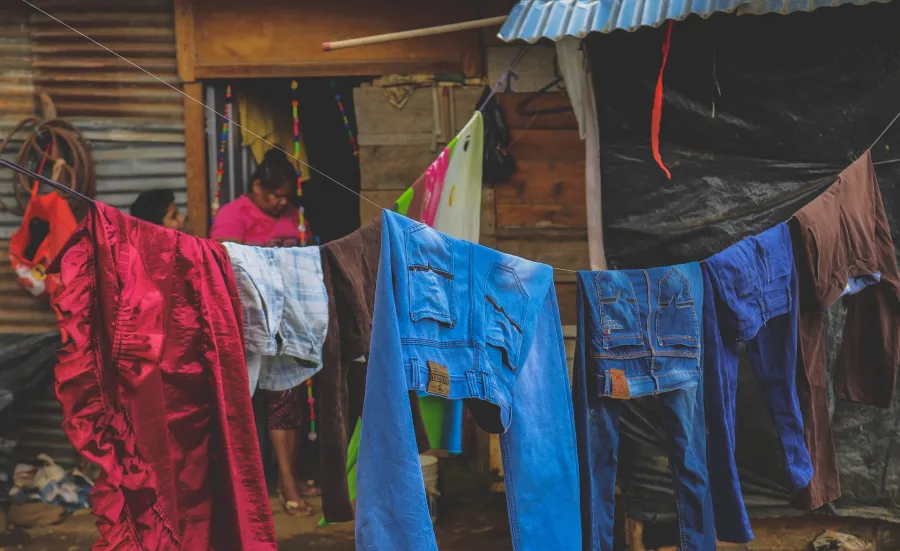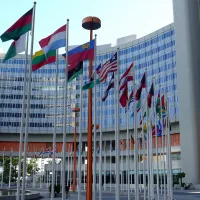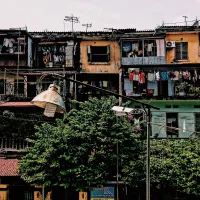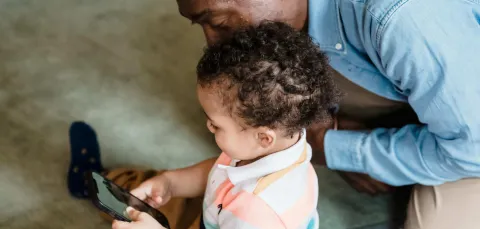Together with an interdisciplinary research consortium, Pia's research focused on forced migrant women’s sexual and reproductive health needs. This includes the management of menstruation, emergency contraception and pre-natal care during their challenging journeys.
Her study provided new data and recommendations to policymakers in Central and South America. This will enable them to better respond to the health needs and rights of displaced women and girls.
Raising awareness
The team carried out interviews and focus groups with around 120 migrant women and girls, displaced from Venezuela to Brazil and from Central America to Mexico. They developed a survey that was completed by over 2000 Venezuelan migrant women in Brazil and over 1000 women migrating in Central America.
The migrant women were included in participatory research, using an arts-based methodology called Photovoice to collate their photographs and testimonies into a photobook. For many of the women, it was the first time they had spoken about the traumas they faced during disisplacement.
When they are on their migration journey, women and girls are at risk of rape, trafficking, abuse, and other hazards related to poverty and discrimination. Our aim is to make women’s voices heard, and raise awareness of their needs and rights, so policies can be adapted accordingly.
Professor Pia Riggirozzi
Based on the women’s voices, the team made a documentary, entitled Salir Adelante (Moving Forward). This has been awarded at the WRPN Women's International Film Festival and screened in several festivals in Brazil and the UK.
They have also produced and printed a digital guide in partnership with the women. This will help other forced migrant women and girls understand their rights.
Creating change
One of the surveys developed for this project is now used by the International Organization for Migration (IOM). It will help them gather data on sexual and reproductive health needs at different stages of the migratory journey. Pia’s team is working with the IOM to provide recommendations for governments in Latin America.
Access to health and social services for migrant women and girls often depends on their legal status, with very limited access for undocumented migrants. There are also other barriers, including language, cultural identity, poverty, age, violence and discrimination.
Pia and the research team co-developed and implemented strategies for effective delivery of Sexual and Reproductive Health (SRH) for displaced women through the AGAPE guide, which offers:
- Assessment of female displaced migrant SRH needs
- Guidance in identifying and accessing services in destinations
- Assistance in processes of movement and sites of transit and settlement
- Protection from wrongs and harms that impact on SRH
- Enabling self-reliance and movement to durable solution
The project continues as more countries express interest in replicating the survey and the AGAPE guide. The results are being used by governments, IOM and civil society to improve care and services for migrant women.
Millions of women and girls in Central America and Venezuela are caught in a vicious spiral of vulnerability to endemic violence, humanitarian crisis and forced displacement. Our research has given female forced migrants a voice and provided new data and recommendations to policymakers in Central and South America, allowing them to respond effectively to the health needs of this vulnerable group of people.
Professor Pia Riggirozzi
The Redressing Gendered Health Inequalities of Displaced Women and Girls (ReGHID) project is funded by the Economic and Social Research Council (ESRC) as part of the Global Challenges Research Fund portfolio.











